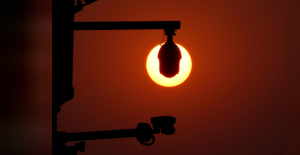The Pandemic as Force Multiplier: Winners and Losers Beyond the Living and the Dead
Hundreds of thousands of human beings are at risk in this pandemic. So is freedom.

Lisa Van Dusen
April 2, 2020
While citizens the world over are adapting to self-isolation and quarantine directives, failing to do so because they cannot afford to, coping with COVID-19 themselves or mourning loved ones, the winners and losers from this pandemic are already beginning to emerge.
Interestingly, many of the people, places and things that are already coming out ahead in this viral genocide are people, places and things whose pre-existing trajectories had begun meeting a level of resistance that the pandemic, as a force multiplier, has obliterated, diverted or depleted.
Geopolitically, the combination of Donald Trump’s performative, lunatic incompetence and the massive drain of the economic costs of the pandemic on the treasuries of Western democracies has created a suddenly telescoped advantage for China’s global aspirations at a moment when the existing world order was just beginning to push back against Beijing’s war on democracy.
Institutionally, the Western intelligence community whose unprecedented post-9/11 funding and expansion had essentially made it a borderless non-state actor in this clash of the world orders has been given a suddenly amplified advantage against democratic oversight and public outcry in the form of a deadly opponent that can only be defeated, it has been argued, with the mobilization of Orwellian surveillance. That new level of surveillance brings fragile and besieged democracies much closer to the surveillance state China has been building for two decades while, to hear them tell it (and we know they never lie), Western intelligence agencies were “sleeping.”
Meanwhile, other trends that were already underway as new world order priorities — including anti-immigration policies, hardened borders and an array of broader disincentives to human mobility in general — have now been quadrupled-down on in the name, quite understandably, of public health.
Similarly, globalization, that small-world expression of 21st-century interdependence, connection, free trade and pan-cultural fraternizing so loathed by certain institutional and geopolitical domination devotees in all contexts except those that apply to their own activities, is taking a reputational hit. If anything will give globalization a bad name, it’s the gruesome butterfly effect of a deadly virus that spends New Year’s Eve in a Wuhan fish market, then staggers out with a hangover that could kill a million people from Dusseldorf to Des Moines.
The other potential loser, not at all surprisingly, is the aforementioned pre-beleaguered and besieged system of government known as democracy. In a world where we’re going to be tracked, hacked, monitored, bugged, propagandized, infantilized, poached and behaviourally modified based on the strategic corruption and narrative warfare requirements of interests bored by oversight and understandably wary of public judgment, democracy will be as welcome as a nun at a strange bedfellows’ orgy. Which is why so many governments worldwide are using the pandemic as camouflage for an anti-democracy power grab.
Freedom is, to grossly understate the case, an undervalued commodity. Historically, attacks on it have been lubricated by incrementalism, by misdirectional rationalization, and by Schadenfreude. What has never changed is the fact that we never know, to quote a great self-isolating Canadian poet, what we’ve got ‘til it’s gone. You can’t have freedom without privacy, and you can’t have either without democracy.
When this pandemic has run its course, we will be starting over from the baseline of an absence of freedom unprecedented in liberal democracies, at least in peacetime. We will have grown accustomed to restrictions on our choices, movements, prerogatives, privacy, plans and dreams because of a convergence of health and economic disaster.
We’ll have been placated through that transformation, taking refuge in a comforting, parallel reality where freedom — certainly in the aspirational world order whose notions of power are being normalized by this pandemic — is an illusion, while authentic reality is being transformed, ostensibly in our best interests.
Meanwhile, while we were sleeping and isolating and dying, the marvels of the last revolution will have been fully repurposed as the weapons of this one.
Lisa Van Dusen is associate editor of Policy Magazine and a columnist for The Hill Times. She was Washington bureau chief for Sun Media, international writer for Peter Jennings at ABC News, and an editor at AP in New York and UPI in Washington.
